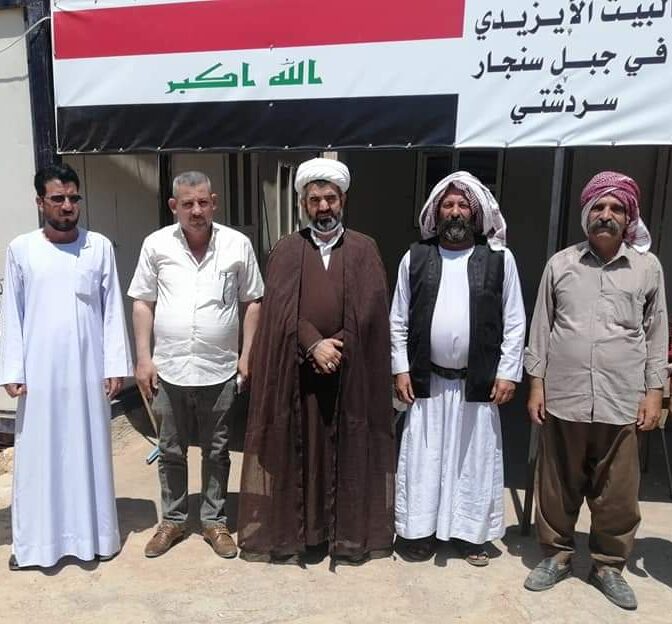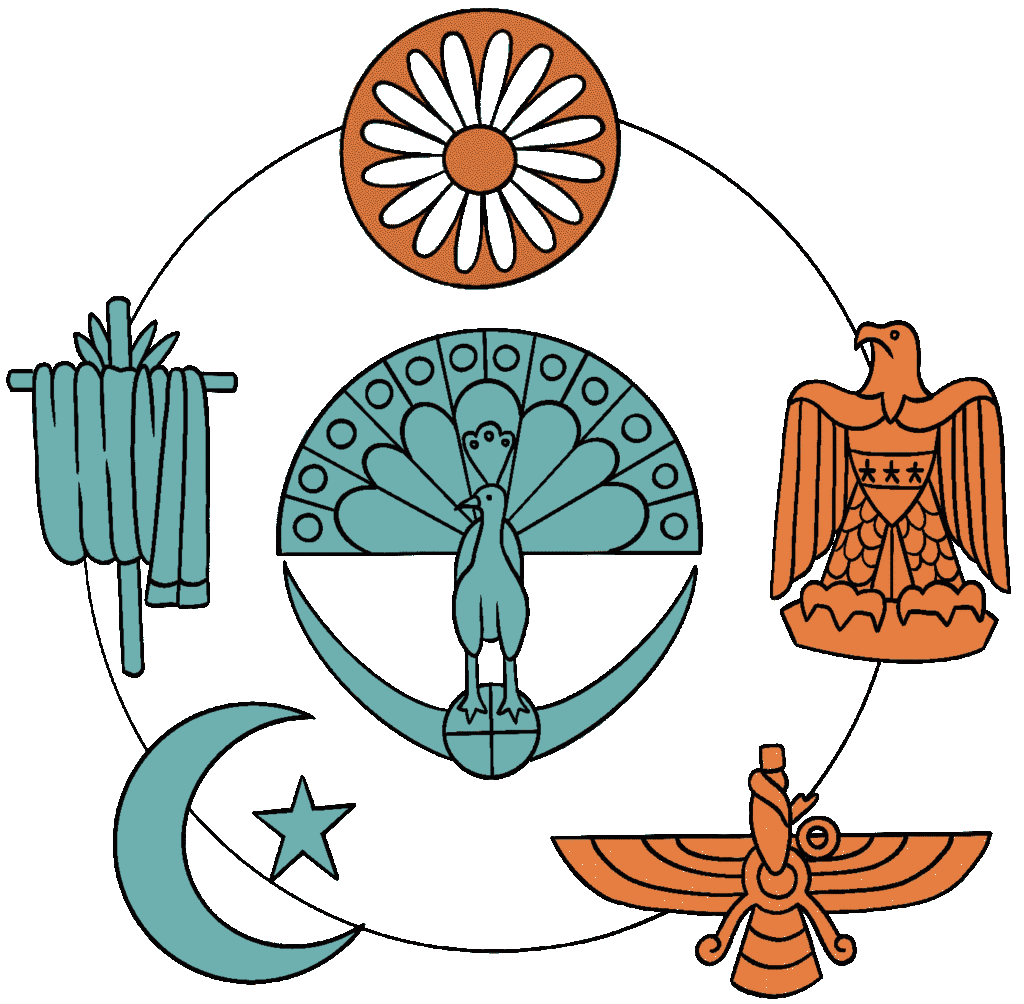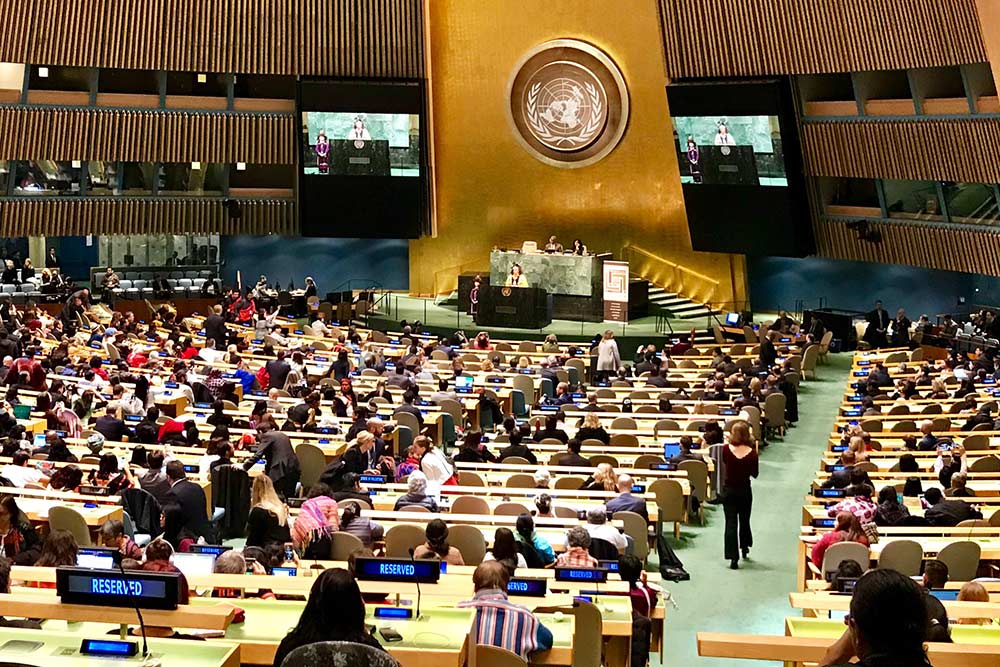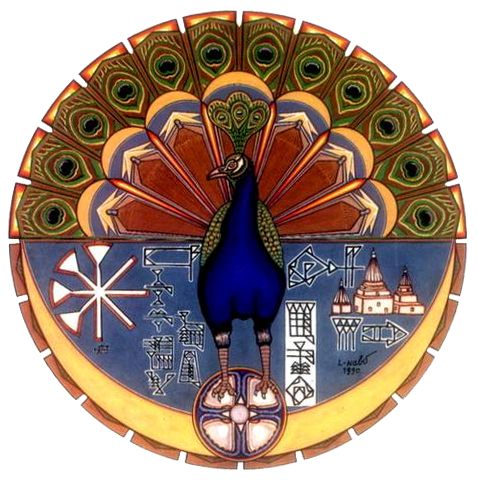Alliance of Indigenous Nations: Winds of Change in the Middle East?
Yezidi ‘Peace Offensive’ creates regional alliance
[Shingal, Ezidikhan – 16 September 2020] In a low-key affair here last month, a broad array of tribal nations and ethnic minorities agreed on a framework for a Confederation of Indigenous Nations of the Middle East open to all indigenous nations of the Middle East.
Present at the Shingal conference were representatives of Iraq’s Kawliya, al-Dulaimi Tribal Confederation and Mandaeans, as well as representatives of Syria’s al-Sham and the Zoroastrian world community. Also on board the Alliance but not physically present were the Berber minority of Libya, Ahwaz of Iran, Shabaks of Iraq and Palestinian Bedouins residing in the State of Israel.

The host Yezidi nation of Ezidikhan, fielding representatives from Iraq, Syria, Turkey, Armenia and Russia, assumed an uncustomary central role for reclusive minority who, until barely a decade ago, lived in relative isolation.
A sixteenth nation, the Yarsanis of Iran and Iraq, is said to be the latest ethnic minority waiting to join this still growing regional alliance. “We are are expecting even more indigenous nations to sign on,” according to Ms. Nallein Sowilo, Iraqi Ezidikhan’s Minister of Justice and one of the accord’s principal architects.

Last month’s signing in Shingal on 21 August of the Treaty in the Government of Ezidikhan’s facility in Shingal cast a spotlight on the leading role played by the Yezidi people of Ezidikhan in facilitating the creation of the first-ever All-Middle East Confederation of Indigenous Nations. Even Ezidikhan Government officials themselves were astonished by their success in negotiating, planning and hosting the first such conference of its kind in the region.
“We are all natural allies. That is why we call this an alliance of First Peoples. We represent the Middle East’s ancient heritage of ethnic and religious diversity.”
-Ezidikhan Minister of Justice Nallein Sowilo
The announcement took observers by surprise. Fifteen indigenous tribal nations of the Middle East, led by the Yezidi Nations of Ezidikhan, including Iraq, Syria, Turkey, Armenia and Russia, had over the course of a year negotiated the treaty as a lasting alliance. Conducted as as a low-key affair, the Shingal Treaty conference has amazed organisers and observers alike by the scale and diversity of nations eager to join the Alliance.
Observers were also startled by the speed and scope of this development from an unexpected quarter, namely long-neglected indigenous minorities sharing a common purpose: to bring to justice those responsible for genocidal policies and actions against indigenous minorities of the Middle East.
Iraqi Shabak leader Hamza al-Najjar summarized his nation’s position and that of others. “The Shabak Nation is a major Iraqi power now, with the creation of a Shabak Constitution and forming our own government,” he said.
“In recent times there has been a peaceful and inclusive coexistence among all communities of the Ninevah Plains, whether they be Shabaks, Mandaeans or Yezidis. This treaty is important in order to establish the legal rights of tribal peoples,” the Shabak leader said, adding, “We will remain in the area to protect our people.”
“Ezidikhan is firmly committed to serve justice to all victims of genocide, whether they are Yezidis or indigenous minorities of whatever nation. We will not rest until there is justice for all indigenous peoples, Yezidis included!”
-Ezidikhan Minister of Justice Nallein Sowilo
Due to pandemic conditions, most negotiations were conducted remotely, with Iraqi Ezidikhan’s Minister of Justice Nallein Sowilo playing the leading role in persuading fifteen nations to come to the bargaining table. The Treaty is said to have required a year of patient behind the scenes negotiations.

“Ezidikhan is firmly committed to serve justice to all victims of genocide, whether they are Yezidis or indigenous minorities of whatever nation,” Ms. Sowilo declared at the conclusion of the conference. “We call this an alliance because we are all natural allies. We stand for the Middle East’s long heritage of ethnic and religious diversity.”
Justice Minister Sowilo explained how the idea of such an alliance was born. “This idea came to me on the very day of ISIS attack on Ezidikhan on August 3rd, 2014. I was in Turkey about to go to Iraq when the assault happened. The trip was canceled, but on my return flight I began thinking about Ezidikhan autonomy and a confederation and tribunal.”
“I knew that for at least forty years Yezidis as well as other communities had wanted autonomy, but no one did anything. It was in January of 2015 through July 2016 when I was in Iraq that I met leaders of most of these communities and we laid the groundwork for our Confederation.”
Under Article Two, the Shingal Treaty commits signatory nations to resolve conflicts by peaceful means only. “The Parties undertake, as set forth in the Charter of the United Nations, to settle any international dispute in which they may be involved by peaceful means in such a manner that international peace and security and justice are not endangered…The nations…will seek to eliminate conflict in their international economic policies and will encourage economic collaboration between any or all of them.”

“Foremost in everyone’s mind was how to obtain justice for wrongs including the genocidal policies of nation states,” says Justice Minister Sowilo. “On behalf of this Confederation, Ezidikhan will begin to raise these issues at international forums, including the United Nations.”
“Foremost in everyone’s mind was how to obtain justice for wrongs including the genocidal policies of nation states. On behalf of this Confederation, Ezidikhan will begin to raise these issues at international forums, including the United Nations.”
-Ezidikhan Justice Minister Nallein Sowilo
Indigenous peoples, also known in some regions as First peoples, First Nations, Aboriginal peoples or Native peoples, are ethnic groups who are the original or earliest known inhabitants of an area, in contrast to groups that have settled, occupied or colonized the area more recently.
The Middle East was once–and still is, but to a lesser extent–home to a dazzling array of ethnic and religious diversity. This Alliance signals that minorities with their backs to the wall are finally uniting for their collective survival.

| Ahwaz of Iran | Mandaeans of Iraq |
| Al-Dulaimi Tribal Confederation | Palestinian Bedouins |
| Al-Sham of Syria | Russian Ezidikhan |
| Armenian Ezidikhan | Shabaks of Iraq |
| Berber Tribes of Libya | Syrian Ezidikhan |
| Georgian Ezidikhan | Turkish Ezidikhan |
| Iraqi Ezidikhan | Zoroastrian World Community |
| Kawliya Tribes of Iraq | Pending: Yarsanis of Iran and Iraq |

